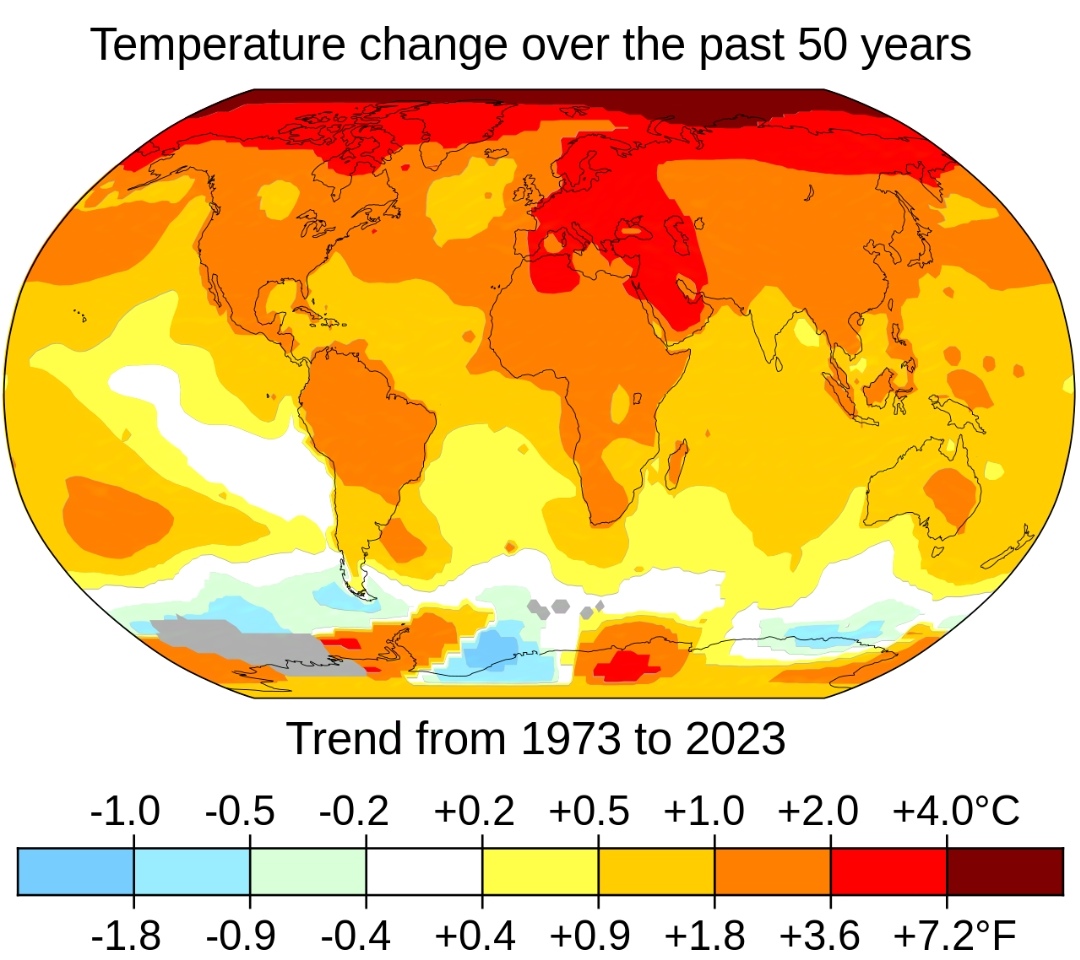As conversations around climate action gain momentum at COP29 and beyond, it’s crucial for everyone to understand some fundamental terms related to climate change. Here at Ecosphere News, we’ve put together five essential questions and answers to help break down what climate change means and why action is needed. Here’s a quick guide to these important concepts, along with some practical ideas on how people can contribute to the global effort.
1. What is Climate Change?
Climate change refers to long-term shifts in global temperatures and weather patterns. While Earth’s climate has naturally fluctuated over millennia, the recent rate of change is largely due to human activities, particularly the burning of fossil fuels like coal, oil, and gas. These activities release greenhouse gases that trap heat in the atmosphere, leading to gradual warming and altering climate patterns worldwide.
2. What is Global Warming?
Global warming is a core component of climate change, describing the steady rise in Earth’s average temperature. This warming is primarily caused by greenhouse gases, such as carbon dioxide (CO2) and methane, released from burning fossil fuels. These gases form a “blanket” around the Earth, trapping heat and causing temperatures to rise. 
This warming effect not only disrupts weather systems but also affects ecosystems, leading to various consequences for biodiversity, agriculture, and human communities.
3. How is Climate Change Affecting Us?
Climate change impacts are already visible and felt around the world. The frequency and severity of extreme weather events—such as flash floods, cyclones, droughts, and heatwaves—are increasing. These events are not just momentary; they damage ecosystems, worsen air and water quality, and disrupt food production. Vulnerable populations, especially children, are at heightened risk as climate change impacts their health and growth, threatening their future. These disruptions show us that climate change is not a distant problem; it’s a pressing issue affecting us today.
4. How Do We Tackle Climate Change?
There are two primary strategies to address climate change: mitigation and adaptation.
Mitigation involves actions aimed at reducing greenhouse gas emissions. This includes transitioning away from fossil fuels to renewable energy sources like wind, solar, and hydropower. Efficient energy use and sustainable transportation are also part of mitigation efforts, helping reduce our collective carbon footprint.
Adaptation focuses on preparing for and managing the risks associated with climate impacts. This might involve building resilient infrastructure, such as flood defenses, enhancing healthcare systems to handle climate-driven diseases, and improving food security through sustainable farming practices. Adaptation ensures that communities are better equipped to cope with changing conditions.
5. Who is Responsible for Tackling Climate Change?
The answer is simple, everyone. While individual actions like reducing personal consumption, lowering emissions, and using energy-efficient technology contribute to the solution, these efforts alone are not enough. Global and systemic changes are essential to mitigate and adapt effectively to climate change. Governments and world leaders play a critical role in setting policies, creating regulations, and funding programs to scale up climate action. Global commitments, especially those discussed at COP summits, are vital for achieving the goals necessary to safeguard our planet.
Taking Action Together
Understanding these core concepts equips each of us with the knowledge needed to participate in climate action, whether through personal choices or by supporting policies that encourage large-scale change. Knowledge is a powerful tool in building a future where everyone contributes to a healthier, more sustainable world.
Did this quick guide help simplify some key climate terms? Let us know what other climate topics you’d like to learn about as we continue exploring pathways to sustainability. Join the conversation, stay informed, and be part of the change. #COP29 #ClimateAction #EcosphereNews